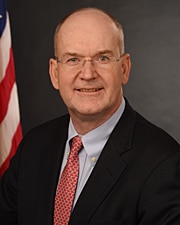Apr 19
2019
HHS Announces Next Steps In Advancing Interoperability of Health Information
The U.S. Department of Health and Human Services (HHS) today issued for public comment draft two of the Trusted Exchange Framework and Common Agreement (TEFCA) that will support the full, network-to-network exchange of health information nationally. HHS also released a notice of funding opportunity to engage a non-profit, industry-based organization that will advance nationwide interoperability.
Specifically, the documents being released for comment are: (1) a second draft of the Trusted Exchange Framework (TEF), (2) a second draft of the Minimum Required Terms and Conditions (MRTCs) for trusted exchange, and (3) a first draft of a Qualified Health Information Network (QHIN) Technical Framework. These documents will form the basis of a single Common Agreement that QHINs and their participants may adopt. This Common Agreement will create baseline technical and legal requirements for sharing electronic health information on a nationwide scale across disparate networks.

“The seamless, interoperable exchange of health information is a key piece of building a health system that empowers patients and providers and delivers better care at a lower cost,” said HHS Secretary Alex Azar. “The 21st Century Cures Act took an important step toward this goal by promoting a national framework and common agreement for the trusted exchange of health information. We appreciate the comments and input from stakeholders so far and look forward to continued engagement.”
In developing a TEFCA that meets industry’s needs, HHS’ Office of the National Coordinator for Health Information Technology (ONC) has focused on three high-level goals:
- Provide a single “on-ramp” to nationwide connectivity;
- Ensure electronic information securely follows you when and where it is needed; and
- Support nationwide scalability for network connectivity.
ONC will maintain the TEF, while a non-profit, industry-based organization, known as the Recognized Coordinating Entity (RCE), will be awarded funds to develop, update, implement, and maintain the Common Agreement. Through this effort, ONC will define the minimum required terms and conditions needed to bridge the current differences among data sharing agreements that are preventing the flow of electronic health information. The industry-based RCE will be tasked with developing additional required terms and conditions necessary to operationalize the Common Agreement and meet the interoperability requirements of the 21st Century Cures Act.

“The updated Trusted Exchange Framework and Common Agreement we issued today considered the more than 200 comments we received on our previous draft and reflects extensive work with our federal partners,” said Don Rucker, M.D., national coordinator for health information technology. “The future Common Agreement, made possible by the steps we take today, will provide the governance necessary to meet the interoperability demands of diverse stakeholders, including patients, healthcare providers and health plans.”
The drafts released today are responsive to stakeholder comments by making key changes to the draft requirements that health information networks who choose to participate would have to follow. These changes include updating the purposes for which information can be exchanged, adding a “push” method of data exchange, adding a technical framework for QHINs, and extending timelines for participating entities to implement changes that will be required by the Common Agreement.
These changes will help improve the flow of information between networks where needed and appropriate. In public health settings, for example, “reporting from providers is a foundational capability for effective public health action,” said Chesley Richards, MD, MPH, FACP, deputy director for public health scientific services at the Centers for Disease Control and Prevention. “The TEFCA will not only strengthen this capability, but will create the ability for timely and true bi-directional information sharing that is essential for responding to public health threats and epidemics.”
Designed to fill the gaps that currently impede the secure and appropriate flow of health information and to continue to enable the progress that has already been made in the private sector, the success of the TEFCA depends on coordination with the private sector. “We expect that the implementation of the Trusted Exchange Framework and the Common Agreement, will bring us all that much closer to achieving the administration’s goals of nationwide interoperability,” said Dr. Rucker.
The public comment period on the TEF, MRTCs, and QHIN Technical Framework ends on June 17, 2019, and stakeholders are strongly encouraged to provide comments to help ONC shape the future of interoperable health information flow.
The application period for the Notice of Funding Opportunity — Trusted Exchange Framework and Common Agreement Recognized Coordinating Entity (RCE) Cooperative Agreement will be open until June 17, 2019.